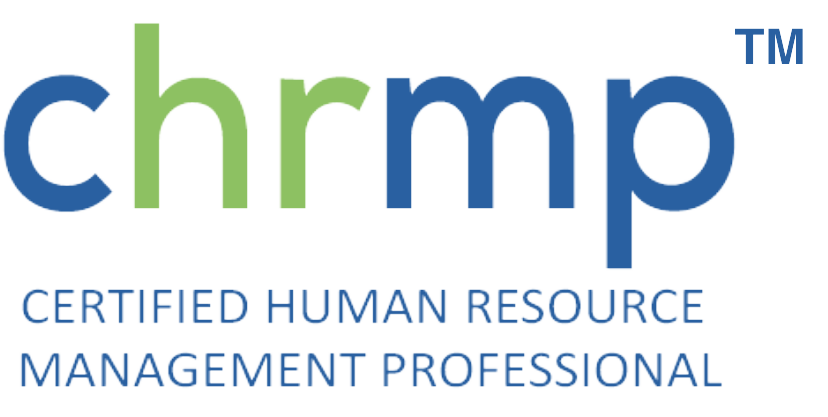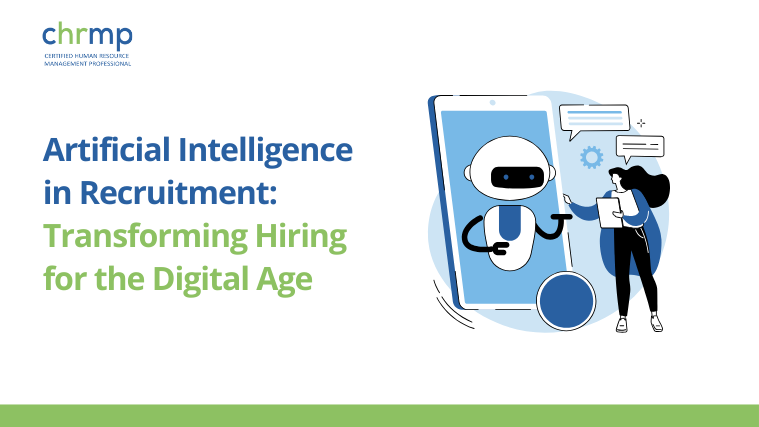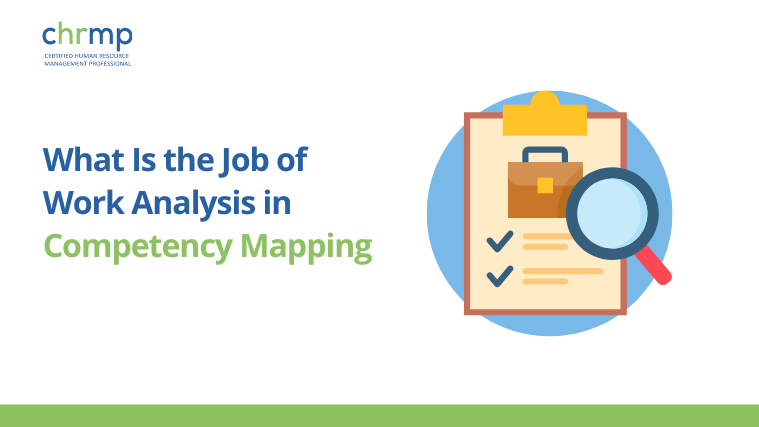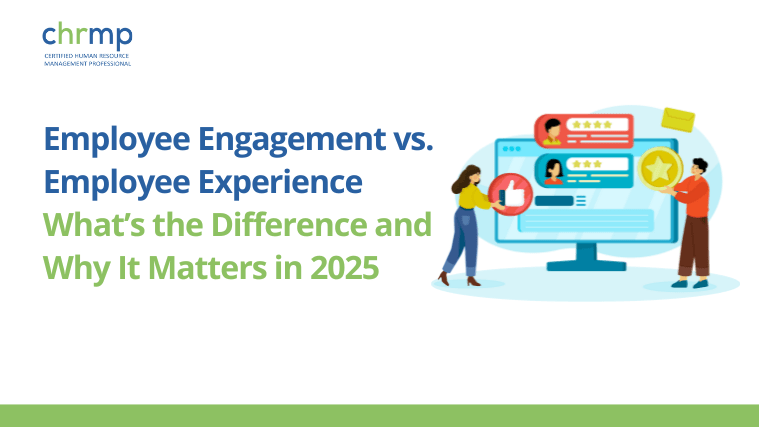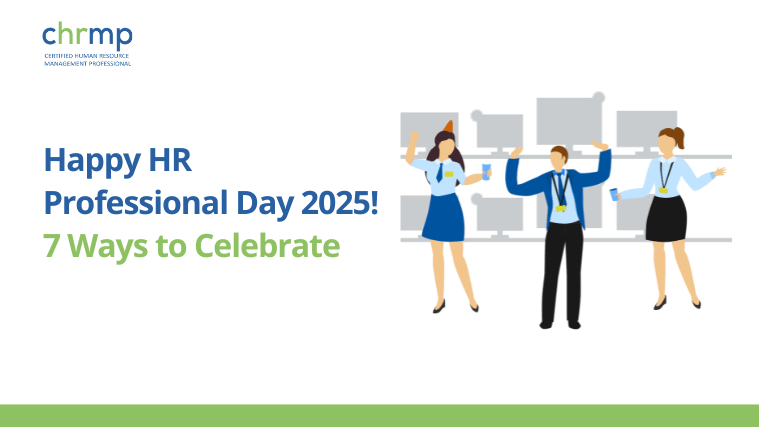Is your current recruitment strategy keeping pace with the rapid changes in today’s digital-first world? The recruitment landscape is undergoing a seismic shift, driven by the integration of AI in recruitment. No longer just a futuristic concept, AI is now a practical tool that is revolutionizing how companies attract, assess, and hire talent. As HR professionals increasingly turn to AI recruiting technologies, it’s essential to understand how these advancements can enhance the recruitment process, making it more efficient, fair, and strategic.
The Evolution of Recruiting in the Digital Age
Traditional recruiting methods have served us well for decades, but they are no longer sufficient to meet the demands of today’s fast-paced, digital-first world. Manual resume screening, phone screenings, and interview scheduling are time-consuming processes that often leave recruiters overwhelmed and candidates impatient. The advent of AI in the recruitment process signifies a pivotal evolution. As companies face increased competition for top talent, the need for more agile, data-driven recruiting strategies has never been greater.
Technology started this transformation years ago with Applicant Tracking Systems (ATS) that helped organize and streamline recruitment tasks. However, the introduction of AI hiring has taken things to the next level, automating routine tasks, reducing bias, and improving candidate experiences.
How AI is Revolutionizing the Recruitment Process
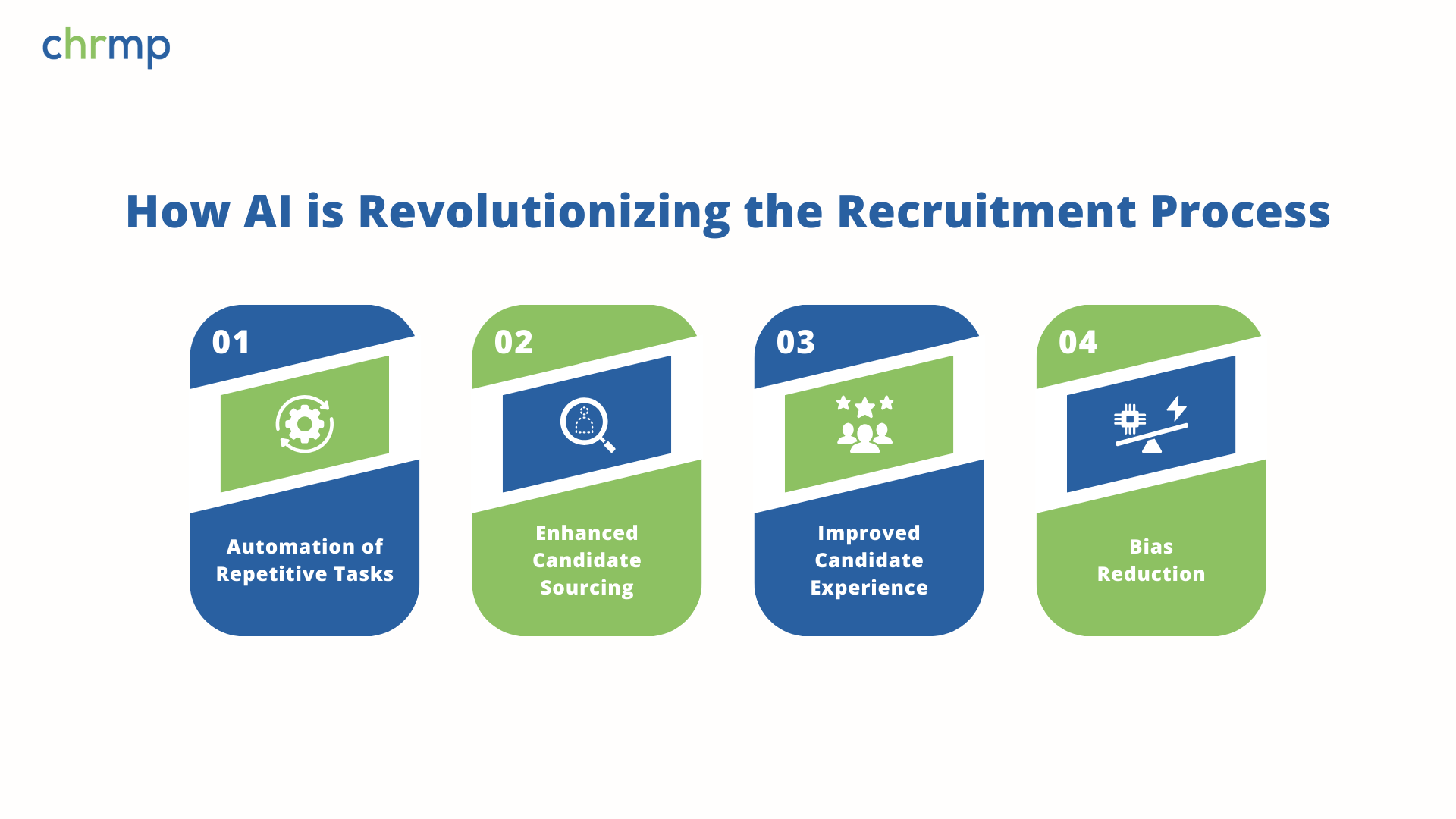
The role of AI in recruitment is multifaceted, impacting everything from candidate sourcing to onboarding. Let’s explore some key areas where AI-powered recruiting is making significant inroads.
- Automation of Repetitive Tasks: One of the most significant benefits of AI in recruitment is its ability to automate time-consuming tasks. AI tools can quickly screen thousands of resumes, highlighting the most relevant candidates based on predefined criteria. This not only saves time but also ensures that no qualified candidate is overlooked. For example, Unilever has adopted AI to sift through resumes and has reported a 50% reduction in time spent on initial screening (source: HR Technologist).
- Enhanced Candidate Sourcing: AI-based recruiting tools can analyze vast amounts of data to identify where the best candidates are likely to be found. These tools can predict which job boards or social media platforms will yield the best results for specific roles, allowing recruiters to focus their efforts more strategically. Companies like SAP use AI-driven sourcing tools to match job postings with potential candidates, improving the efficiency of their recruitment process (source: Forbes).
- Improved Candidate Experience: AI chatbots have become increasingly popular in recruitment. These virtual assistants can answer candidate queries in real-time, schedule interviews, and even conduct preliminary assessments. This immediate interaction helps keep candidates engaged and informed, enhancing their overall experience. For example, L’Oréal uses AI-driven chatbots to interact with candidates, resulting in a 93% satisfaction rate from applicants (source: HBR).
- Bias Reduction: AI has the potential to reduce unconscious bias in hiring by focusing on objective data rather than subjective judgment. By using AI algorithms that evaluate candidates based on skills, experience, and other relevant factors, companies can make more impartial hiring decisions. Hilton implemented AI tools to remove bias from its recruitment process, leading to a more diverse and inclusive workforce (source: Business Insider).
Key AI Technologies in Recruiting
Understanding the different technologies behind artificial intelligence in recruitment and selection is crucial for HR professionals looking to integrate AI into their hiring processes.
- Natural Language Processing (NLP): NLP enables AI systems to understand and analyze human language. In recruitment, NLP is used to match resumes with job descriptions, ensuring that the most qualified candidates are shortlisted.
- Machine Learning (ML): ML algorithms learn from past hiring data to predict which candidates are most likely to succeed in a given role. This predictive capability allows recruiters to make data-driven decisions, improving the quality of hires.
- AI in Video Interviews: AI tools can analyze video interviews to assess not only the content of the candidate’s responses but also non-verbal cues such as facial expressions and tone of voice. Companies like HireVue use AI to evaluate these factors, providing insights that go beyond what a traditional interview can offer.
Benefits of AI in Recruitment
The benefits of AI in recruitment extend beyond efficiency and cost savings. Here are some of the most compelling advantages:
- Efficiency: By automating repetitive tasks, AI allows recruiters to focus on more strategic activities. This leads to faster time-to-hire and a more streamlined recruitment process.
- Cost-Effectiveness: Companies can reduce recruitment costs by minimizing the time spent on manual screening and reducing the likelihood of bad hires.
- Data-Driven Decision Making: AI provides recruiters with actionable insights, enabling them to make better hiring decisions based on data rather than intuition.
- Scalability: Whether you’re hiring for one position or hundreds, AI tools can scale up or down according to your needs, making them ideal for high-volume recruitment scenarios.
Challenges and Ethical Considerations
While the use of AI in recruitment offers many advantages, it also presents challenges that HR professionals must address.
- Bias in AI Algorithms: If not carefully managed, AI algorithms can perpetuate existing biases. It’s essential to regularly audit AI systems to ensure they promote fairness and diversity.
- Privacy Concerns: With the increased use of AI, there’s a growing concern about the privacy of candidate data. Companies must ensure they comply with data protection regulations and maintain transparency about how AI tools are used.
- Human Touch in Hiring: Despite the efficiency of AI, it’s crucial to maintain the human element in recruitment. Personal interactions and human judgment are irreplaceable components of a positive candidate experience.
Future Trends in AI and Recruiting
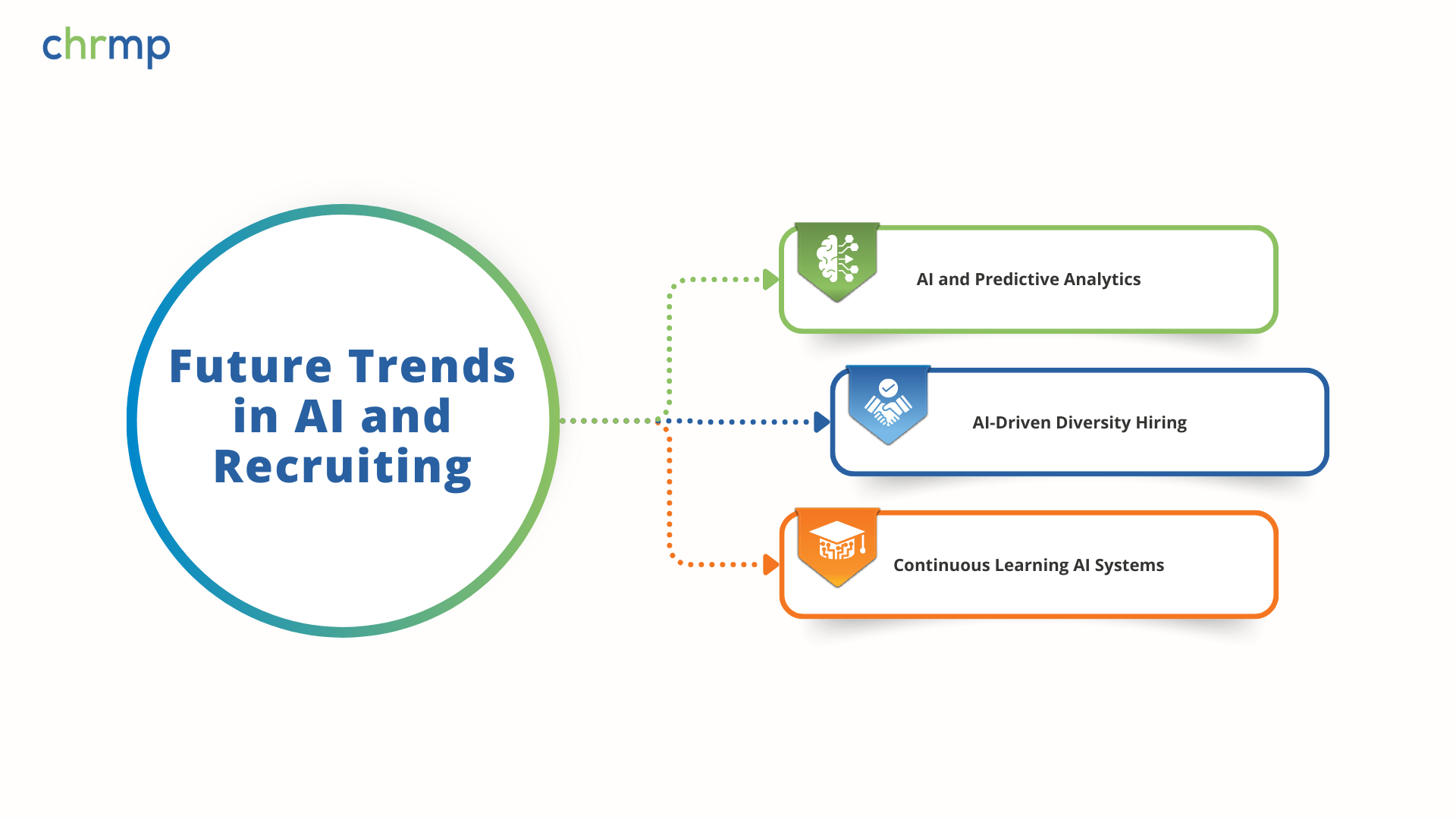
Looking ahead, the future of AI in HR recruitment is full of exciting possibilities:
- AI and Predictive Analytics: AI will continue to improve in predicting candidate success, helping companies make even more informed hiring decisions.
- AI-Driven Diversity Hiring: As AI tools become more sophisticated, they will play an even more significant role in promoting diversity and inclusion in the workplace.
- Continuous Learning AI Systems: AI systems will become more adept at learning from past recruitment campaigns, leading to continuous improvements in hiring processes.
Practical Tips for Implementing AI in Recruiting
For HR professionals ready to embrace AI, here are some practical steps:
- Start Small: Begin by integrating AI tools in areas where they can have the most immediate impact, such as resume screening or candidate sourcing.
- Choosing the Right Tools: Research and select AI tools that align with your company’s goals and values. Look for solutions that are user-friendly and offer robust support.
- Training HR Teams: Ensure that your HR team is well-equipped to work alongside AI. This includes training on how to interpret AI-generated insights and how to maintain a balance between technology and human interaction.
Conclusion
Artificial intelligence and recruiting are no longer separate entities; they are increasingly intertwined, creating a new paradigm in the hiring process. By understanding and leveraging AI for hiring, HR professionals can transform their recruitment strategies, making them more efficient, fair, and future-proof. As the technology continues to evolve, the possibilities for AI in recruitment are limitless, promising a more dynamic and inclusive hiring landscape for all.
Ready to take your recruitment strategy to the next level? Explore AI-driven tools today and position your organization at the forefront of the digital age.
